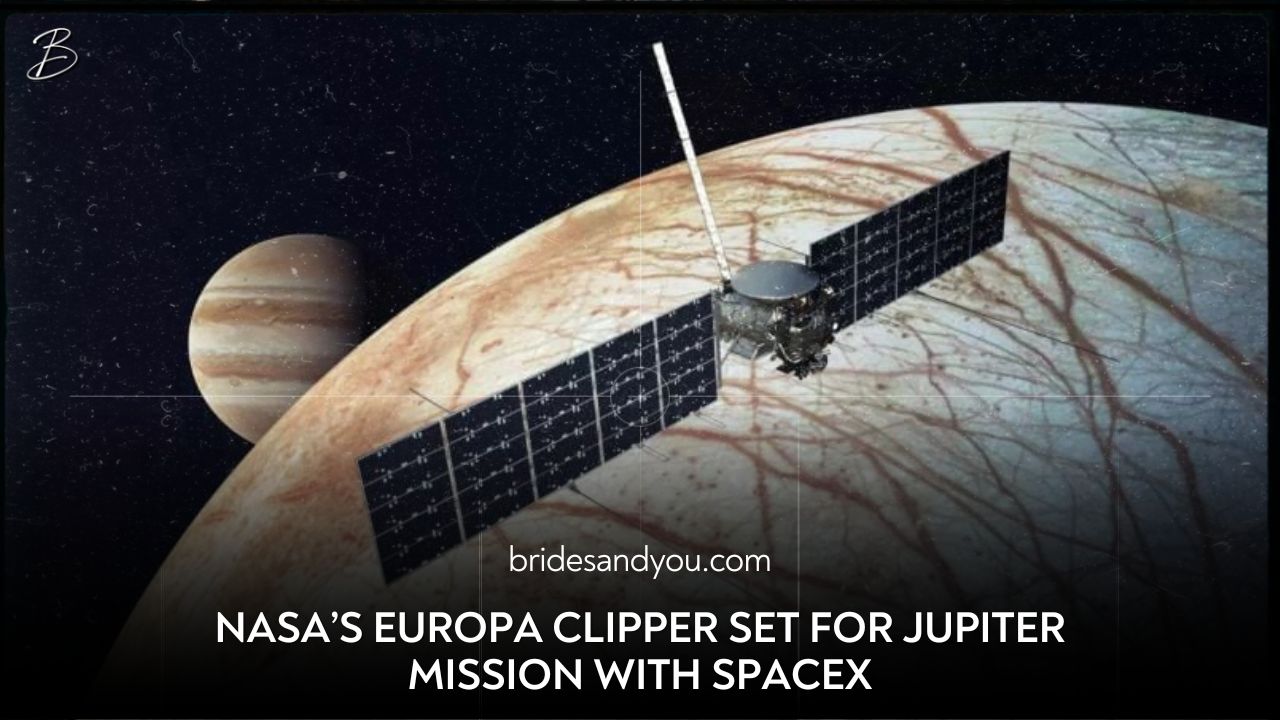Now Reading: NASA’S EUROPA CLIPPER SET FOR JUPITER MISSION WITH SPACEX
-
01
NASA’S EUROPA CLIPPER SET FOR JUPITER MISSION WITH SPACEX
NASA’S EUROPA CLIPPER SET FOR JUPITER MISSION WITH SPACEX

On Monday morning, a SpaceX Falcon Heavy rocket successfully launched from Cape Canaveral, Florida, carrying NASA’s Europa Clipper probe on its mission to explore Jupiter’s icy moon, Europa, for signs of potential alien life.
The Europa Clipper is now on its epic 1.8-billion-mile journey, which will take about five and a half years. “NASA has officially retired a tremendous amount of risk on the mission,” said Jordan Evans, project manager at NASA’s Jet Propulsion Laboratory. Instead of a direct path, Clipper will swing around Mars next year for a gravity assist, then loop back around Earth in 2026 before setting its course for Jupiter. Expected to reach Jupiter in 2030, Clipper will conduct over four years of close flybys around Europa, gathering data to study the moon’s icy surface, underground ocean dynamics, and potential for organic compounds.
Scientists have anticipated this mission ever since NASA’s Galileo probe hinted at a global ocean beneath Europa’s icy crust. As one of the best candidates for alien life, Europa’s environment boasts liquid water, heat energy from Jupiter’s gravitational forces, and possibly organic molecules.
Built by NASA’s Jet Propulsion Laboratory at a cost of $5 billion, the Europa Clipper is NASA’s largest planetary probe to date. After Hurricane Milton delayed the launch originally scheduled for October 10, Clipper was cleared for takeoff under perfect skies.
SpaceX’s Falcon Heavy, a modified version of the Falcon 9 with additional boosters, powered Clipper’s launch. Unlike their usual reusable boosters, SpaceX allowed these boosters to fall into the ocean, fully using the propellant to ensure Clipper escaped Earth’s gravity. However, the rocket’s fairings will be recovered from the ocean.
Matthew Shindell, a curator of planetary science at the Smithsonian, praised the heavy-lift rocket capabilities now available, saying, “If you were trying to launch a mission like this a decade ago, you couldn’t do it.”










